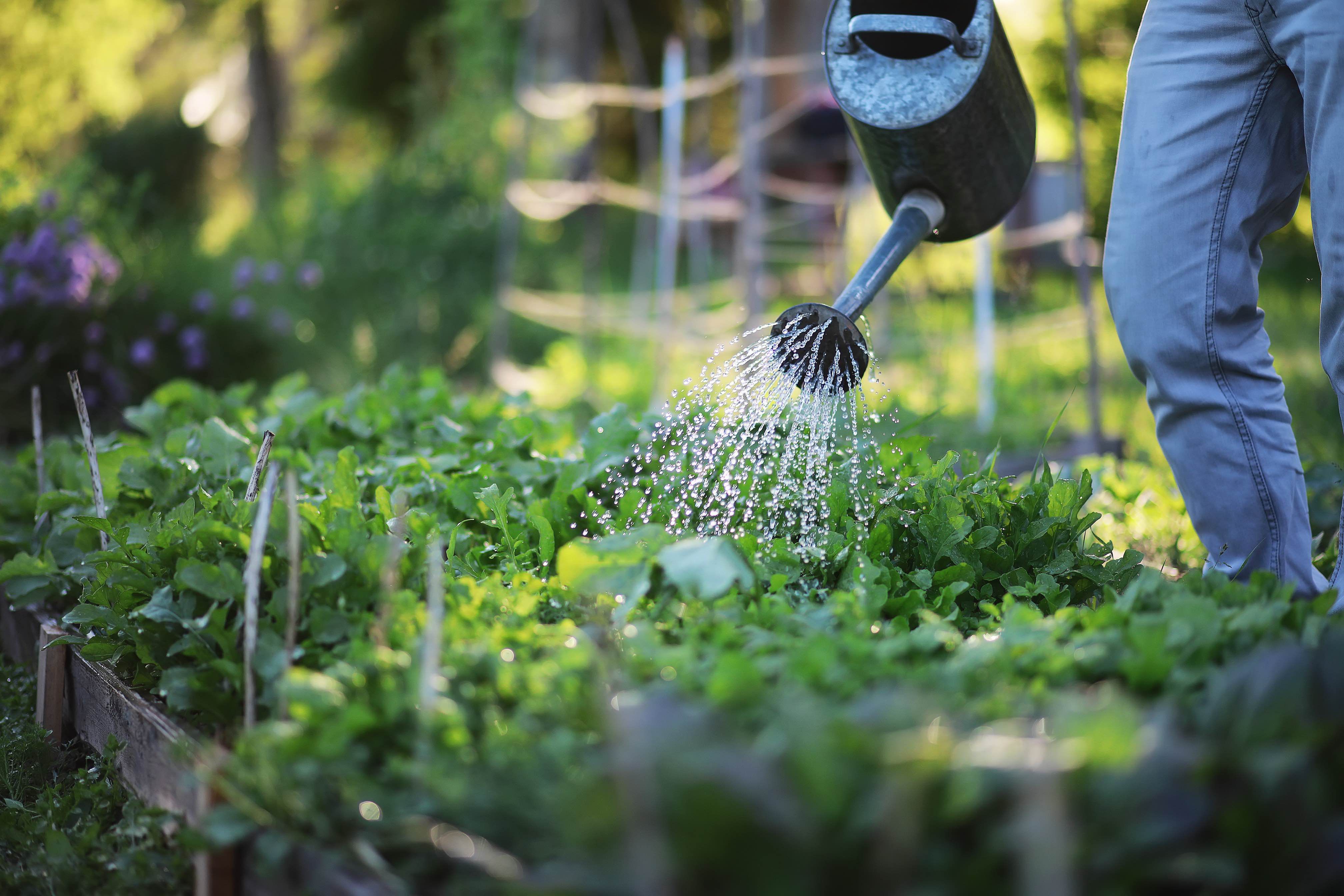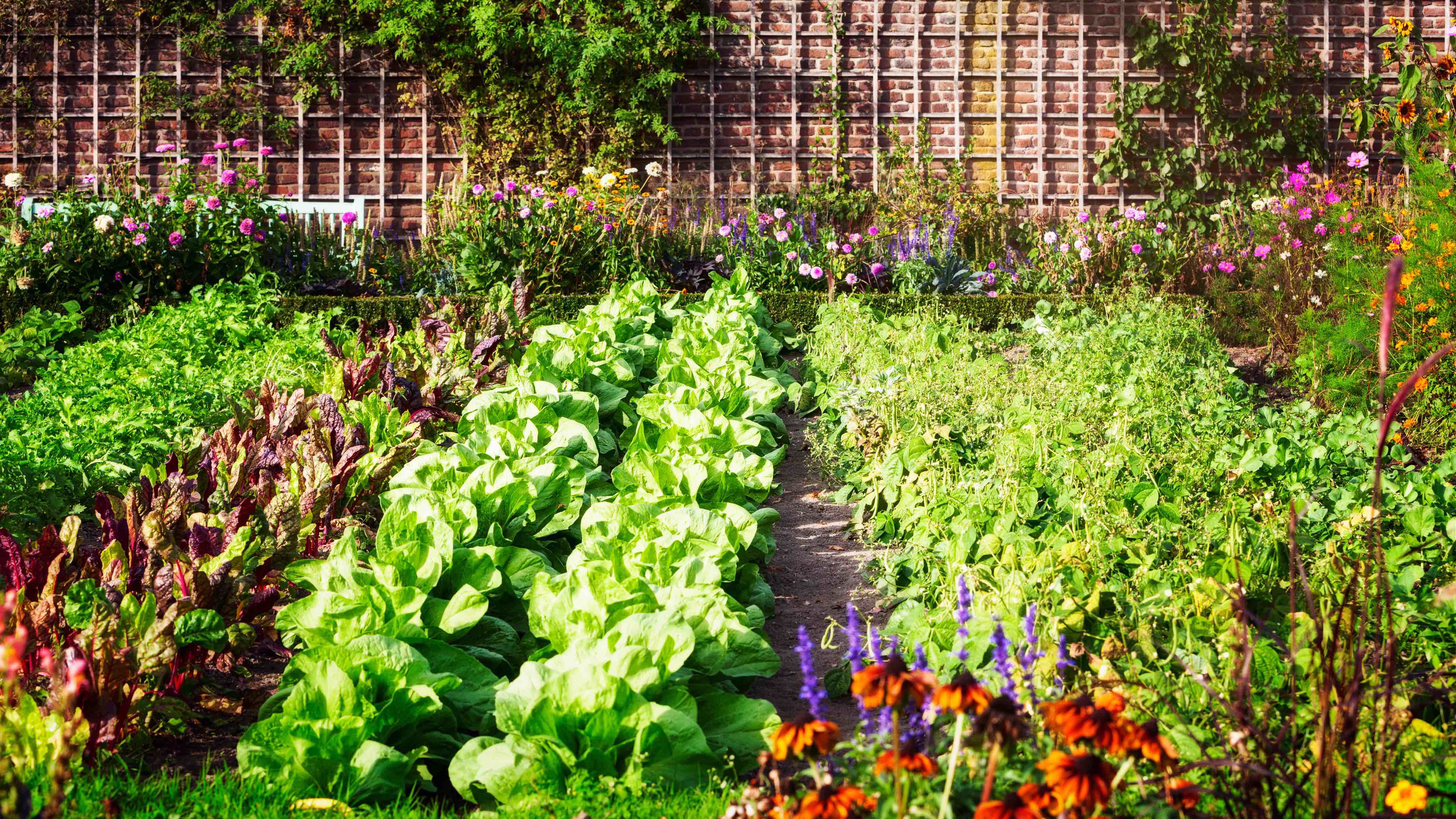Gardening on a Budget
Author
Published
5/25/2022
Around this time of year, most everyone gets excited about gardening, especially vegetable gardening. Gardening has many proven benefits for you and your family, including increased outdoor time, physical activity, learning how food is grown, and increased consumption of fruits and vegetables.
However, the unfortunate truth that any seasoned gardener will tell you, is that gardening can be expensive. In many cases, you will spend more on input costs than you will save on your grocery bill in the amount of produce you grow. However, the satisfaction of growing some of your own food and the taste can’t be beat!
Here are a few ways that you can access all the benefits of gardening, without breaking the bank.

Start Small
I think we all (myself included) have had grand visions of creating edible backyards, fancying ourselves “homesteaders” or “micro-farmers”. We daydream of posting pictures to our social media feeds of lush and full beds with #urbanfarmer, #healthyeating, and #farming.
But the truth is, your garden doesn’t need to be Instagram worthy, especially in the first year. Gardening has a huge learning curve, and it’s best to start quite small and be patient. You most likely won’t grow enough to replace your entire grocery needs and preserve/can for the whole next year- and that’s okay. It’s a wonderful goal to have, but the reality is that gardening is usually primarily a hobby, and something that you will improve on every year. That’s why we are grateful for farmers, because we don’t HAVE to grow all our own food.
Start with a modest budget and try creating one small bed and a selection of plants that grow well in Utah and are fairly easy, like sweet corn, green beans, squash or tomatoes. You can then experiment with all the different factors specific to your yard (pest management, sunshine location, soil needs, etc.) without a large investment.
You don’t NEED raised beds
While we’re on the topic of aesthetics, something to consider is that you don’t NEED to have raised beds in order to have a successful garden. When you type “gardening” into google you usually only see pictures of perfect gardens in containers, but while raised beds definitely have their uses and benefits, they’re not required to garden, and they can be expensive to buy or build.
Consider exploring alternative options, like no-dig, where there are different methods of getting started that don’t require raised beds. Essentially the principles are: kill existing weeds and grass in the area you want to use by laying down some layers of carboard, add soil/compost on top, get water to the area, and start planting. I personally followed Charles Dowding’s guide at charlesdowding.co.uk/start-here to start my own beds (and I’m definitely still a beginner)!
You can plant seeds directly into your beds or buy or grow your own seedlings. Growing your own seedlings will save you money, but it does take some extra effort. There are a multitude of free tutorials on platforms like YouTube and Google.
As mentioned before, there will be big learning curve with getting your garden started, especially when it comes to watering, weed management and pest control. You can experiment with different strategies to see what works best for you, your wallet and your plants.

Utilize Second-Hand Sites and Gardening Advice Pages
You can always check local yard sale pages and websites for cheap seedlings, used gardening equipment, compost bins, free manure or soil in order to save on buying everything new. You can also save yourself some costly mistakes by following gardening advice pages.
In Utah, we have a wonderful resource in Utah State University Extension. They have social media pages that you can follow, like “USU Extension- Yard and Garden” on Facebook, or you can visit their website extension.usu.edu or gardening guides specific to Utah, including soil and water information. The Jordan Valley Conservancy District also has a conservation garden that is a great resource, especially when it comes to best watering practices. They offer free classes and guides at www.conservationgardenpark.org/events.
Getting free advice from experts will help you improve your garden yields and prevent potential mistakes.
Growing food is a noble pursuit, but you don’t have to be a master gardener, or influencer, right now. There is so much value in trying, learning, failing and succeeding. Like one of my favorite quotes says: “Gardening is the slowest of the performing arts.”
Want more news on this topic? Farm Bureau members may subscribe for a free email news service, featuring the farm and rural topics that interest them most!
